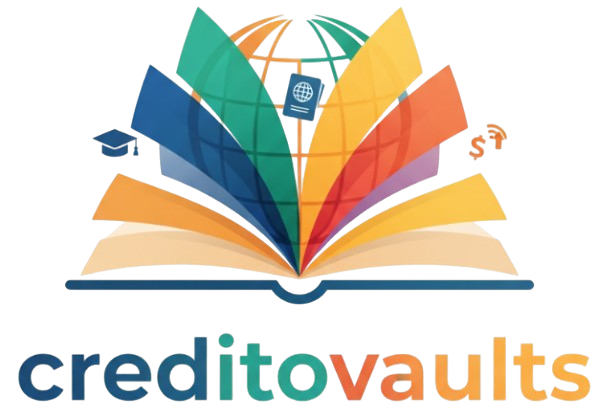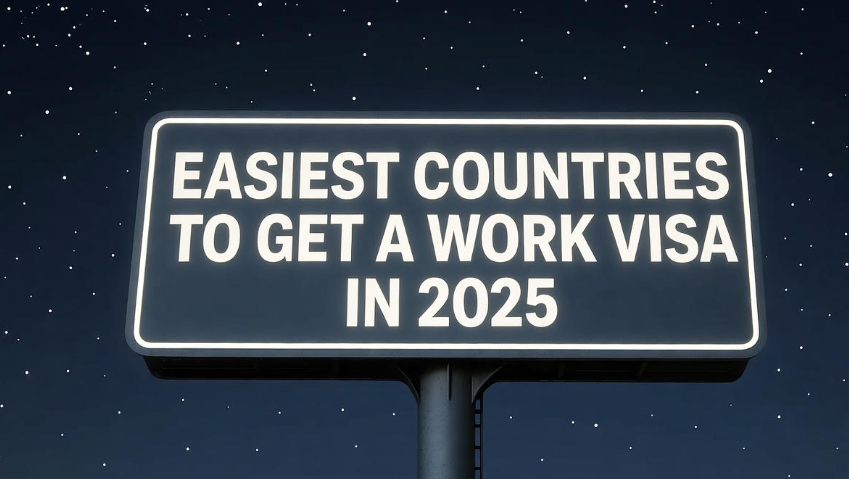Getting a work visa can open the door to new opportunities — better income, international exposure, and the chance to live your dream life abroad . But before that dream becomes real, there’s one big step standing in your way: the work visa interview.
Now, most people get nervous about it. It’s normal. After all, it’s not just a job interview — it’s about your future. The good news is that with the right preparation and mindset, you can pass it confidently. Let’s talk about how you can do that, in the simplest way possible.
Understand What the Interview Is Really About
Before anything else, you should understand the purpose of this interview. The visa officer isn’t trying to make you fail. Their main goal is to check:
-
Are you genuinely qualified for the job?
-
Do you really intend to work and not misuse the visa?
-
Can you communicate well and represent yourself clearly?
-
Will you return to your home country after your job ends (if it’s a temporary visa)?
So, think of it as a conversation rather than an interrogation. The officer just wants to verify your story and see if everything adds up.
Know Your Visa Type and Job Role Properly
One of the biggest mistakes people make is not knowing enough about their visa type or the job they applied for. The interviewer might ask something like:
-
“What kind of visa have you applied for?”
-
“What is your job title?”
-
“Who is your employer?”
If you hesitate or seem unsure, that gives a bad impression. So, before the interview:
✅ Read the visa requirements from your country’s official embassy website.
✅ Learn your employer’s full name, company background, and address.
✅ Know the duration and type of work you’ll be doing.
When you can answer these questions smoothly, it shows confidence and honesty.
Prepare for Common Interview Questions
Even though interviews differ from country to country, some questions are almost universal. Below is a table showing common questions and what the interviewer is really checking.
| Common Question | What They Want to Know |
|---|---|
| Why do you want to work in this country? | Your motivation and honesty |
| What is your job title and role? | If your job details match your visa documents |
| How did you get this job offer? | To confirm it’s a genuine opportunity |
| Do you plan to return after your visa expires? | Your intentions about staying legally |
| What is your educational background? | If your qualifications match your position |
| Who will pay for your travel and expenses? | Financial stability and preparation |
You don’t need to memorize your answers word for word. Just understand what each question is trying to find out and respond naturally.
Dress Neatly and Professionally
Your first impression matters a lot. You don’t need a fancy suit or designer clothes, but you should look neat, tidy, and professional.
Here’s a quick checklist:
-
Wear clean, wrinkle-free clothes.
-
Avoid bright colors or too much perfume.
-
Keep your hair tidy and nails clean.
-
Smile politely — it makes you appear confident and friendly.
Remember, presentation says a lot about how serious you are about the opportunity.
Be on Time and Organized
Arriving late is one of the worst things you can do at a visa interview. Plan to reach the embassy or consulate at least 30 minutes early. That way, you’ll have enough time to settle your nerves and check your documents one last time.
Keep all your papers in a folder, neatly arranged. The officer might ask for your:
-
Job offer letter
-
Passport
-
Visa application form
-
Educational documents
-
Financial proofs
-
Work experience certificates
If you can present any document instantly when asked, it makes you look responsible and well-prepared.
Be Honest in Every Answer
Never try to lie or fake information — even a small one. Visa officers are trained to catch inconsistencies. If they sense something’s off, your application could be refused.
If there’s something unclear in your paperwork, just explain it truthfully. Honesty always builds trust.
For example, if there’s a gap in your employment history, say something like:
“I took some time off to learn new skills and prepare for international opportunities.”
That sounds much better (and truer) than making up a fake job experience.
Show Confidence, Not Arrogance
Confidence is attractive; arrogance isn’t. When you talk, keep eye contact, speak clearly, and stay calm. You don’t have to sound like a native English speaker — just express yourself naturally.
If you don’t understand a question, politely ask:
“Sorry, could you please repeat the question?”
It’s completely okay to take a moment before answering. That actually shows you’re thoughtful, not robotic.
Know About the Country You’re Going To
It really helps if you know basic facts about the country — its work culture, currency, or living conditions. The interviewer might casually ask something like:
-
“Why did you choose our country to work in?”
-
“What do you know about our company or city?”
When you answer with specific details — even small ones — it shows genuine interest. For instance:
“I’ve read that your country values punctuality and teamwork, and that matches how I like to work too.”
That kind of answer sounds real, not rehearsed.
Show That You’ll Follow the Rules
Officers want to be sure you’ll respect the country’s laws and visa terms. You can show this in your attitude. Use phrases like:
“I understand my visa is temporary, and I’ll return when it ends.”
“I’ll make sure to follow all local regulations while working.”
These simple statements make a strong impression of responsibility.
Stay Positive Even if You Get Nervous
Everyone feels nervous — that’s okay. The key is to control it. Before going in, take a deep breath, smile, and remind yourself: You’ve earned this chance.
If you fumble a word or forget something, don’t panic. Just pause and continue. The officer is a human too — they know it’s a stressful moment.
Practice Before the Real Interview
You can practice with a friend or in front of a mirror. It really helps! Try answering these:
-
“Tell me about yourself.”
-
“Why did you choose this company?”
-
“What will you do after your work visa ends?”
Record your answers or note where you sound unsure. The more you practice, the smoother you’ll speak on the real day.
You may also like this helpful read: How to Prove Financial Support for Study Visa.
Keep a Friendly Tone
A warm and polite tone goes a long way. Start your interview with a small greeting like:
“Good morning! Thank you for taking the time to see me.”
It immediately builds a positive vibe. Don’t overdo it — just be genuinely polite.
What You Should Avoid
Let’s be honest — sometimes people fail not because they’re unqualified, but because of small mistakes. Avoid these common errors:
❌ Giving one-word answers (e.g., “Yes”, “No”) — always explain briefly.
❌ Showing fake confidence or arguing with the officer.
❌ Bringing incomplete or damaged documents.
❌ Talking too fast or mumbling.
❌ Giving different information than what’s written in your papers.

Be Clear About Your Future Plans
The officer might ask:
-
“What will you do after your contract ends?”
-
“Do you plan to apply for permanent residency later?”
Answer carefully. If you’re on a temporary visa, avoid saying you want to stay forever. That might sound suspicious.
A good example would be:
“I want to gain international experience and return home to apply what I’ve learned.”
That’s realistic, honest, and professional.
Bring Supporting Proofs (If Possible)
Some people forget that showing proof makes your story more believable. For example:
-
A letter from your employer confirming your job offer.
-
Salary slips or tax documents from your previous job.
-
Certificates of courses or language skills.
When you have backup papers, it adds extra credibility to your answers.
After the Interview — Stay Calm
Once it’s over, don’t overthink. Even if the officer didn’t smile much or took notes quietly, that doesn’t mean rejection. Visa decisions depend on many factors. Just be patient and positive.
If your visa gets approved — congratulations!
If it doesn’t — don’t lose hope. You can always reapply with better preparation next time.
Quick Recap: What Helps You Pass a Work Visa Interview
✅ Be honest and confident.
✅ Know your visa type and job details.
✅ Dress neatly and arrive early.
✅ Practice common questions.
✅ Keep documents ready and organized.
✅ Stay polite and respectful throughout.
FAQs About Work Visa Interviews
Q1: What should I bring to my work visa interview?
Bring your passport, job offer letter, application form, visa fee receipt, financial documents, and all educational or work certificates. It’s better to have more than less.
Q2: Can I take my phone inside the embassy?
Usually not. Most embassies ask you to keep your phone outside or in a locker. Check their official website before going.
Q3: What language will the interview be in?
It’s usually in English, but some countries may allow interpreters for specific cases. Still, basic English helps a lot.
Q4: What if I don’t know the answer to a question?
Just say, “I’m not sure about that, but I can check with my employer.” It’s better than guessing or lying.
Q5: How long does the interview last?
Most work visa interviews last 10 to 20 minutes, depending on your case.
Final Thoughts
Passing a work visa interview isn’t about being perfect — it’s about being prepared, honest, and confident. When you know your facts, carry your documents properly, and stay calm, you already stand out from others.
Remember: it’s not a test to trick you; it’s just a way for officials to confirm that you’re genuine. So, smile, stay humble, and show them the best version of yourself.
Your dream job abroad might just be one great interview away ✈️




